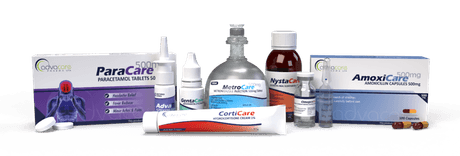What is the meaning of Analgesics?
Analgesics are among the most familiar drugs in the world, prescribed for pain relief. Pain is a common symptom of many medical conditions. Choosing which analgesics depends on the severity of the pain, from painkillers for headaches to arthritis, or stronger analgesic drugs for back pain and more severe conditions.
Analgesics work by blocking the transmission of pain signals to the brain or by reducing inflammation. Some commonly used pain medication includes paracetamol (acetaminophen), metamizole and opioids such as tramadol. These painkillers have different mechanisms of action, but all aim to alleviate pain.


